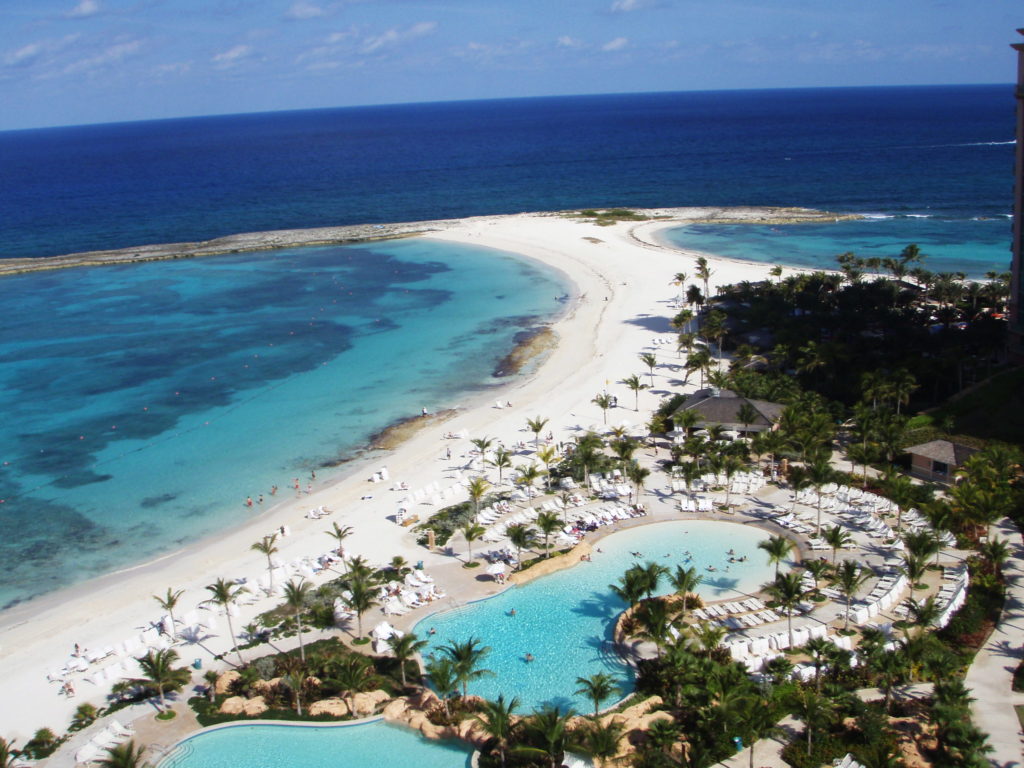A SIDS Moment in December: the latest climate science and implications for SIDS

At the recent ‘A SIDS Moment in December’ event, commemorating the 30th anniversary of the Alliance of Small Island States (AOSIS), Dr Adelle Thomas of the University of Bahamas and Climate Analytics delivered a presentation on the latest climate science and implications for small island states.
Dr Thomas was a contributing author for the Intergovernmental Panel on Climate Change (IPCC’s) Fifth Assessment Report and summarised key messages for SIDS from three special reports that the IPCC has produced since the Paris Agreement.
Small islands are already experiencing widespread and significant climate change impacts
These include:
- 1 degree of global warming caused by human actions
- oceans have become warmer and more acidic
- more intense marine heatwaves
- sea levels rising at faster rates
- more intense tropical cyclones
- increased coastal erosion and flooding
- effects on key livelihoods such as fisheries
- land degradation and impacts on food and security, impacting many small islands dependent on food imports.
Climate change risks worsen significantly as global temperatures rise – every half a degree matters
Dr Thomas confirmed that the ‘1.5 to stay alive message’ championed by small islands is supported by science. She said: “The evidence is clear – risks from climate change are far worse at 2 degrees of warming as compared to 1.5 degrees, especially for small islands.
“With higher levels of warming we face the complete loss of [some] coastal ecosystems and significant risks to fisheries, tourism and agriculture. As temperatures increase we run out of nature-based adaptation options…and may actually have to start relocating communities.”
All the above trends are also summarised in the CASA programme’s Guide to Climate Science for Small Island Developing States.
We need urgent and ambitious climate action to limit temperature rise to 1.5 degrees
Dr Thomas warned that if average global warming continues at current rates, the world may reach 1.5 degrees – in a worst case – as early as 2030, commenting: “Current emissions reduction pledges are not enough and will result in warming of about 3 degrees.”
She outlined the following actions that need to happen to prevent this:
- global co-operation to achieve zero net carbon by 2050
- speedy transition to renewable energy, particularly in the power sector.
Concluding her address, Dr Thomas said: “The good news is that ambitious climate action has synergies with sustainable development, it contributes to improving food and water security and health conditions and also reduces poverty and inequality.
“The messages from the IPCC are clear: we are already seeing the consequences of 1 degree of global warming, every extra bit of warming above 1.5 degrees matters, particularly for small islands, and limiting warming to 1.5 is still possible, but if requires unprecedented and widespread action.”
Dr Thomas was lead author for the IPCC’s Special Report on 1.5-degrees and is a lead author for the upcoming Sixth Assessment Report. Watch her full address at the SIDS event here and the full event proceedings here.
Image: Bahamas, courtesy ashamalay, Flickr.
The three IPCC reports that Dr Thomas summarised are:
www.ipcc.ch/srocc: IPCC, 2019: Summary for Policymakers. In: IPCC Special Report on the Ocean and Cryosphere in a Changing Climate
www.ipcc.ch/srccl: IPCC, 2019: Summary for Policymakers. In: Climate Change and Land: an IPCC special report on climate change, desertification, land degradation, sustainable land management, food security, and greenhouse gas fluxes in terrestrial ecosystems
www.ipcc.ch/sr15: IPCC, 2018: Summary for Policymakers. In: Global Warming of 1.5°C. An IPCC Special Report on the impacts of global warming of 1.5°C above pre-industrial levels and related global greenhouse gas emission pathways, in the context of strengthening the global response to the threat of climate change, sustainable development, and efforts to eradicate poverty.